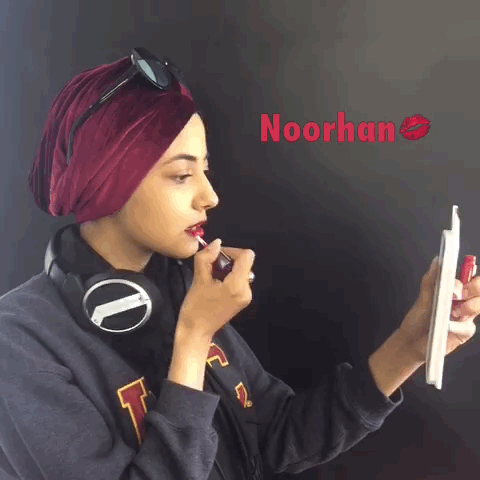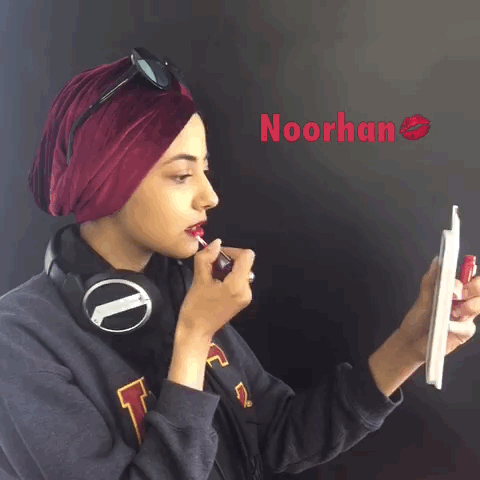After the Paris attacks, I was in downtown Los Angeles interviewing a woman for an article I was writing for class. As we were walking out of the café where the interview took place, a man came up to us and started yelling.
It took me a little while to realize that he was yelling at me. His face was twisted into an angry expression that, at the moment, was terrifying.
“You Mozlem!” he was yelling, “you did Paris! Kill all Muslims!”
The Friday after San Bernardino, I woke up to text messages from my friend.
“My mom just made me shave my beard,” he wrote. “I was just thinking about how I can shave my beard and people won’t know I’m Muslim. But you and other Muslim women can’t just take off your hijabs.”
“Please be careful,” he added.
Every time a terrorist attack happens, I clap my hands together, close my eyes, and think, ‘Please don’t let it be a Muslim shooter, please.’
A month after San Bernardino, I changed the way I wore my hijab because my mother was terrified I might be attacked. She keeps CNN on TV when she’s at home, so she’s always up to date on attacks against Muslims.
It’s not easy to be a hijab-wearing Muslim in America, even in a place as liberal as Los Angeles. Although I just moved to L.A. from Dubai in August, I’ve been harassed and called a terrorist more times than I can count.
When in February I participated in a round-table interview with KTLA and other Muslims, I was very impressed by those in attendance, but I was particularly awestruck by one woman: Mirvette Judeh.
Mirvette wears the hijab like many other Muslim women. She’s a mother of three. She’s a real estate agent and a delegate for the Democratic Caucus. But she’s unusual in one aspect.
While some hijab-wearing women were contemplating taking off the hijab due to safety concerns, Mirvette decided to put on the hijab at age 38 to, as she puts it, “[be] that person that’s going to take away those misconceptions and those false images that have been assigned to my religion.”
One Muslim SoCal woman decided to wear the hijab at age 38. More on her story this week. #NextGenRadio pic.twitter.com/vGFqWZ9L8F
— that poc feminist (@NoorhanMaamoon) March 16, 2016
My experience reporting this STORY
Participating in NPR’s Next Generation Radio boot camp was a no brainer. Yes, it took place during spring break, but my other option was to travel to Dubai. While seeing my family would’ve been fun, I knew that this program would be invaluable. I also didn’t want to get on a sixteen-hour flight.
Great start to this week’s #NextGenRadio program @USC! Excited to be out on the field tomorrow with @sonianarang ????????
— that poc feminist (@NoorhanMaamoon) March 14, 2016
When my mentor, Sonia Narang, told me to have three story ideas ready to pitch, I knew that I wanted to write about the recent spike in Islamophobia. The topic is very personal to me, so how could I not? I hated that my people were being portrayed as terrorists an d murderers. I knew that, by bringing Mirvette’s story to light, I would be the that much closer to convincing the world that Muslims are not evil — that we’re human, just like everyone else.
d murderers. I knew that, by bringing Mirvette’s story to light, I would be the that much closer to convincing the world that Muslims are not evil — that we’re human, just like everyone else.
My mentor has been so supportive throughout the entire experience. I could not have asked for a greater mentor. As the story took shape, she guided me rather than taking over, which allowed me to learn more than I expected to.
I have to say that I did not know radio took so much work. Sonia and I followed Mirvette around for five hours, and the editing process was brutal – Traci Tong, the project’s managing editor, is sweet but the thought of disappointing her is terrifying.
I hope I did Mirvette’s story justice. Mirvette feels as though she is a representative of Islam, and I feel the same about myself, so making sure that her story came across perfectly was a priority to me.
“The hijab is bigger than me. It represents an entire religion.” #NextGenRadio pic.twitter.com/HZxfehPcOz
— that poc feminist (@NoorhanMaamoon) March 17, 2016
This week has been exhausting and exhilarating as well as hilarious and horribly busy. I’m glad it’s over, but I’m also sad to see it go.
I’m going to miss the free pastries and coffee in the morning, however.

